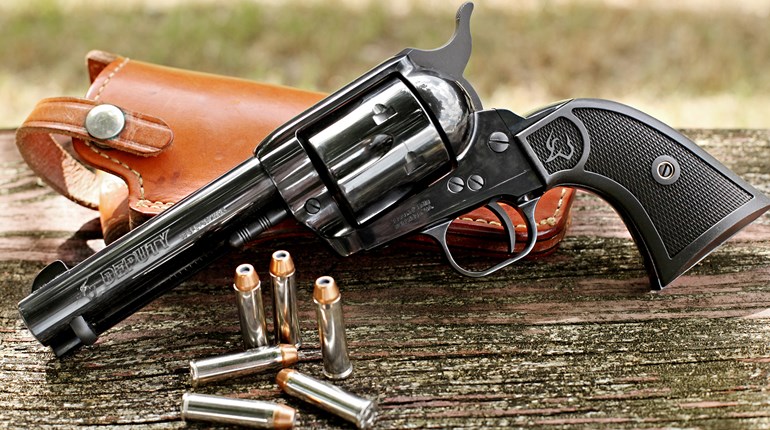
June 6 is one of a handful of days in American history that many regular folks (read here as not history buffs) can correctly tie to a discrete event, namely D-Day—the World War II Allies’ Normandy assault on Adolf Hitler’s “Fortress Europe.” Pearl Harbor and Independence Day are the only likely challengers to such wide and accurate recollection.
But a slight narrowing of focus to military history attaches pivotal significance to more occasions in the first week of June. The Battle of Midway in World War II is one example: Imperial Japan’s fortunes began an unending slide with the loss of four aircraft carriers to the Pacific Fleet off Hawaii’s Midway Island between June 4 and 7, 1942.
Ninety-nine years ago this week was another—one of particular significance to the U.S. Marine Corps. Despite “halls of Montezuma to the shores of Tripoli” exploits, the Corps was still considered an ancillary force by both the Army and Navy. Marines had made important but small-scale contributions to many victories in the nation’s wars, but never by virtue of large numbers playing decisive roles.
Belleau Wood would change that. The Wood was an actual wood, maintained by Parisian Frenchmen as a hunting preserve. The war had largely raged around it, and in the spring of 1918 the irregular, 1-by-1.5-mile grove still contained considerable game and lush, old-growth hardwoods.
German General Erich Ludendorff had penetrated to within 45 miles of Paris in a three-month-long spring offensive. U.S. Army General John J. Pershing (commander of the Allied Expeditionary Force) was determined to stop the German salient in the Belleau area despite a French retreat. Brigadier General James Harbord poured Marines into the gap created where French troops had been overrun, and ordered his men to dig whatever fighting positions they could with their bayonets. On June 3, they waited until German infantry was within 100 yards before firing, and finally halted Luderdorff’s troops in their continuing attempt to break into the Allied rear.

Before either side was dug fully in, Lt. William Eddy and two others stole through German lines on the night of June 4. They discovered clear preparations for another and more aggressive—though not quite imminent—assault, and brought that intelligence back to Major General Omar Bundy and Harbord. Despite the fact that not all his troops were in position yet, Bundy decided to attack the entrenching Germans as soon as possible. Early on the morning of June 6, the Marines began their assault on enemy positions in the Wood and on “Hill 142.” Throughout a day when progress was measured in mere yards, U.S. casualties mounted to more than 1,000.
In the vanguard of the action that day was double Medal of Honor and Navy Cross winner First Sergeant Daniel Daly. Daly was widely believed to have urged his 73rd Machine Gun Company forward with what literally became Marine Corps lore: “Come on, you sons of bitches. Do you want to live forever?” (Daly never claimed this colorful and very Marine-like exhortation; later reporting that he said: “For Christ’s sake men, come on! Do you want to live forever?”). Nor was Daly’s heroism unique: Gunnery Sergeant Earnest Janson would earn both the Army and Navy Medals of Honor on Hill 142 that sixth of June in a single-handled repulse of 12 Germans trying to retake the hill and position five machineguns to sweep the advancing Allies.
As nighttime fell on the 6th, Allied and German troops were deadlocked. Though the Marines had achieved a foothold, the punishing seesaw of Belleau Wood would begin again with a German counter-attack on June 7, and last nearly three more weeks. Artillery and interlocking machinegun fire would give way again and again to bayonets and hand-to-hand fighting.
Against the Allied positions in the now-shattered preserve—the French on the left, and the Marines on the center and right—the Germans threw mustard gas and at least six more counterattacks. The Russian revolution had freed German units fighting on the Eastern Front, and Ludendorff threw these at the Belleau Marines with a will. In the end, however, his five divisions were to no avail: On June 26, Major Maurice Shearer (3rd/5th Marines) blandly reported, “Woods now U.S. Marine Corps entirely.”
The purpose of Ludendorff’s timing and attacks during the Spring Offensive were well understood—even at the time—and his loss at Belleau Wood more than simply martial. He had hoped to break through Allied lines enough to threaten Paris before the arrival of American troops, believing he could then negotiate an end to the war from a position of territorial advantage, as well as uncertainty about the battlefield readiness of American soldiers.
The Belleau Wood outcome utterly dashed this hope: Indeed, both French allies and German antagonists were awestruck by the ferocity of U.S. Marines. To this day, descendant units of the 5th and 6th Marines are entitled to wear the French Fourragère in recognition of the valor of their units. Similar if grudging homage was forthcoming from the German Army as well: At Belleau, the Teufelhunde were born—the “Devil Dog” nickname Marines proudly bear to this day.
In slightly more than five months, the “Great War” would mercifully end. A retrospective Gen. Pershing gave the battle context, saying, “… for the U.S., (Belleau Wood was) the biggest battle since Appomattox (Court House) and the most considerable engagement American troops had ever had with a foreign enemy.”
Perhaps even more remarkable for the eventual Army 6-Star (only George Washington outranked him) was “Black Jack” Pershing’s outspoken praise for the deadliest weapon in the world: “… a United States Marine and his rifle.”
Frank Winn has been studying arms and their relationship to tyranny, meaningful liberty and personal security all his adult life. He has been a firearms safety/shooting instructor for more than 20 years, and earned state, regional and national titles in several competitive disciplines.

































